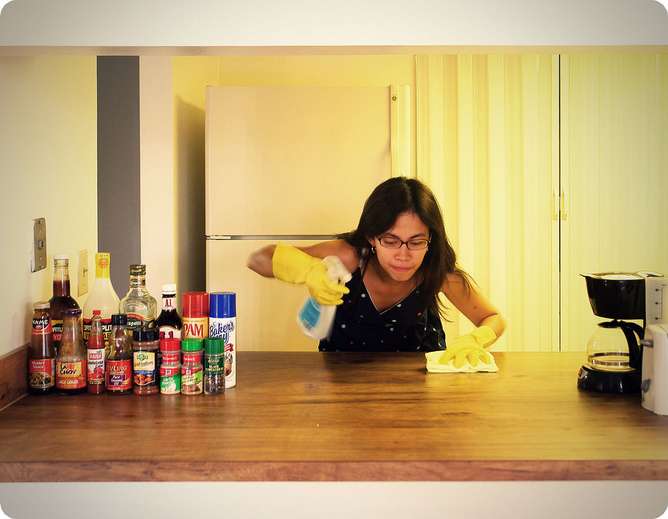Opinion: You can't be 'a little bit OCD' but your everyday obsessions can help end the stigma

"I'm a little bit OCD" is a phrase that's often bandied around. Perhaps you've used it to describe your excessive cleaning habits or desire for order. Some argue that the flippant use of this phrase trivialises a serious condition and increases stigma. It certainly doesn't help our understanding of the problem. But denying the obsessive-compulsive experiences that we all have may actually be increasing stigma and preventing those who are suffering from seeking help.
Obsessive-compulsive disorder (OCD) is a debilitating condition characterised by unwanted intrusive thoughts and repetitive behaviours or mental acts. Although OCD is often associated with cleanliness and orderliness, it can manifest in a variety of ways. Some spend hours each day worrying about whether they have committed a paedophilic act while others are plagued by the thought that they may have caught HIV from their toothbrush, towel or phone.
Roughly one in 50 people are diagnosed with OCD after being assessed by a mental health professional and meeting certain criteria. This diagnostic system means you're either regarded as having OCD or not. As a result, some view OCD as an illness and argue that saying you're a "little bit OCD" is akin to saying you're having "a little bit of a heart attack" or you're "a little bit pregnant" - it's impossible. Others argue that the phrase increases stigma in those with a diagnosis.
Everyday obsessions and compulsions
There is no denying that individuals diagnosed with OCD are often affected by stigma. But research actually suggests that considering mental health problems as biological "disorders" that are either present or absent actually increases some negative views, such as increasing the belief that people with mental health problems are dangerous and less likely to recover.
When considering OCD as a diagnostic label, it's true that you cannot be "a little bit OCD". The constant misuse of this phrase may reflect our tendency for hyperbole as much as it reflects our ignorance about the condition. But this does not mean that thoughts and behaviours that are characteristic of OCD are exclusive to those with a diagnosis.
Have you ever had the sudden impulse to push somebody in front of a train? Or suddenly doubted whether you had locked your front door? These are examples of intrusive thoughts and they are experienced almost universally.
Although these thoughts are unwanted, for many of us they are infrequent and don't bother us very much. For others, they are more common and troublesome. Roughly one in three people with no diagnosed mental health issue report having been bothered by intrusive thoughts for periods of over two weeks. And for the million people diagnosed with OCD in the UK, these thoughts are so frequent and upsetting that they can prevent them from living an ordinary life.
Another experience that you may be familiar with is the need for order, neatness or getting things "just right". Perhaps you feel uncomfortable if books are not arranged in size order. Or feel your hands are not quite clean enough unless you wash them several times.
These are examples of "not just right experiences", the general feeling that something is not as it should be. These are common experiences and most of you reading this article will have likely had the experience at least once in the past week. Again though, for most people these experiences are not a problem. For others they are more frequent and upsetting. And for those with a diagnosis of OCD the feelings can be relentless and extremely upsetting.
The thoughts and behaviours that are characteristic of OCD exist on a continuum. In fact, much of what we know about OCD has been discovered from research on people from the general population.
It is inaccurate and unhelpful to compare the presence of OCD to the presence of a heart attack. OCD is more akin to blood pressure or acne. Most of us know what it's like to have a pimple. Very few of us know what it's like to have cystic acne. Crucially though, we can empathise with those who have cystic acne by imagining "what if?". What would it be like if I had lots more pimples? What if they were larger, more visible and more painful? How would this affect me?
Now imagine you couldn't get it to stop
Accepting the experiences we share can serve to increase our understanding and empathy, not reduce it. As David Adam suggests in his OCD memoir, the most helpful response to somebody saying "I'm a little bit OCD", might be "now imagine you couldn't get it to stop".
Mental health education needs to begin in schools at the time when children may begin to have problems with troublesome thoughts and behaviours. And campaigns such as that by the charity OCD-UK are vital in increasing the public's understanding of OCD.
But more importantly, we all need to talk openly and sensitively about our irrational thoughts and behaviours. Roughly two thirds of people with OCD will never seek treatment. Many feel shame for having strange or taboo thoughts. Perhaps if they knew that we were all having them too, they would feel more comfortable talking to somebody about theirs.
This story is published courtesy of The Conversation (under Creative Commons-Attribution/No derivatives).
![]()















